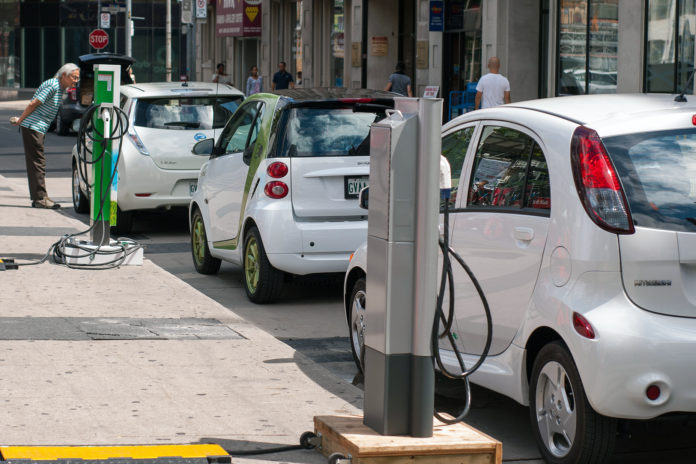
It’s no great secret that oil and gas companies are not thrilled by the idea of an electric vehicle future. Some of them – plus their lobbyists and allied politicians – are now showing it by going into open war against one of their bugbears: the electric vehicle tax credit.
While many cities and cities and states have their own credits, the federal credit represents the biggest chunk of the subsidy. It works like this: the federal government provides a tax credit of $7,500 to buyers for the first 200,000 electric vehicles sold by each automaker (Tesla and GM have already reached this threshold). Once the OEM sells that first block of 200,000 vehicles, the tax credit drops by half for all cars sold over the next six months, and then by half again for another six months before disappearing.
Eight states offer additional EV tax credits, which will be particularly compelling for Tesla and GM EV buyers. Colorado and Connecticut offer $5,000; Delaware and Maryland offer $3,500; California, Oregon, Massachusetts and New York offer $2,500 each. All states have a slightly different sets of rules and regulations about how these credits can be used. In some cases (Colorado), these credits are due to start phasing out next year.
Two camps in Congress are fighting to end or renew the federal subsidies. Representative Rep. Daniel Kildee (D-Michigan) and Senator Debbie Stabenow (D-Michigan) are co-sponsoring legislation to raise the 200,000-unit ceiling so companies selling electric vehicles would be able to sell three times as many before the credits expire. Automakers are in favor of this legislation. On the flip side, Senator John Barrasso (R-Wyoming), who is chairman of the Senate Environment and Public Works Committee, has proposed legislation to eliminate the credit. He has many allies in the Republican camp, and the full support of the oil and gas lobby.
Oregon Live has noted that the situation has triggered an intense lobbying battle on Capitol Hill between two powerful and traditionally closely linked industries: automakers and energy companies. Stabenow and Kildee’s legislation has the backing of the Alliance of Automobile Manufacturers, which represents a dozen automakers, as well as environmental groups, the American Lung Association and the Edison Electric Institute, a consortium of investor-owned electric companies. The American Fuel and Petrochemical Manufacturers is backing Barrasso’s legislation, and says the credit is subsidizing wealthier Americans who can afford to buy an electric vehicle, while leaving poorer Americans in the dust.
Neither camps can come to an agreement on how much the tax credits are costing the country. The American Fuel and Petrochemical Manufacturers has said that the plan to extend the tax break bill could cost the federal government $15.7 billion over 10 years. The Joint Committee on Taxation has put the figure at less than half that, $7.5 billion, for the current credit between fiscal years 2018 and 2022.
While no one can predict which camp will win, Oregon Live believes that the Democrat-controlled House will have an edge in the matter, as preparation of tax legislation originates in that chamber. Importantly, the tax credit extenders do have some allies on the Republican side, including Senators Susan Collins of Maine and Lamar Alexander of Tennessee.












